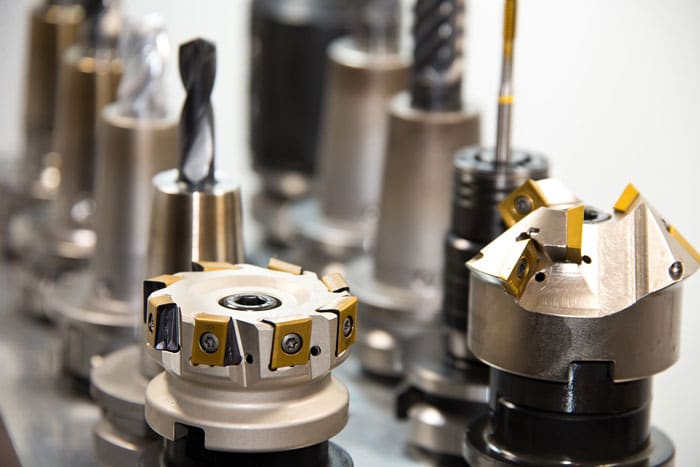
This post provides detailed information on the production technician job description, including key duties, tasks, and responsibilities that they commonly perform.
It also highlights the major requirements you may be expected to fulfill to be hired for the production technician role by most recruiters/employers.
What Does a Production Technician Do?
A production technician directly supports assembly line operations, equipment performance, output quality, and productivity targets.
They report to a production supervisor or manager and work closely with quality assurance teams, maintenance staff, machine operators, and process engineers.
Production technicians are employed in virtually every industry involving manufacturing operations, including automotive, aerospace and defense, medical devices, electronics, plastics and polymers, textiles, food and beverage, pharmaceuticals, and more.
They work in plant settings, ranging from small specialized production facilities to enormous factories with multiple interconnected assembly lines.
While no formal education is required, many have an Associate’s degree or vocational certificate in manufacturing processes, equipment maintenance, or a specialized technical field.
On-the-job training is common and companies often support earning additional technical credentials.
Certifications demonstrate expertise in areas like lean manufacturing, six sigma quality standards, OSHA safety procedures, metrology, and automation technology.
The production technician job description involves monitoring equipment performance metrics and outputs, and performing preventive maintenance and minor repairs.
It also entails conducting quality assurance inspections and reporting issues, as well as coordinating with teams across departments.
Data tracking, analysis & documentation, providing production status updates and supply, and tool management are also key duties carried out.
They may also oversee machine set up, test new equipment or processes, identify improvement opportunities, lead small projects, handle materials, and fill in for operators.
Employers look for candidates with mechanical aptitude, attention to detail, communication and teamwork skills, problem-solving abilities, and comfort working in fast-paced industrial settings.
Production Technician Job Description Example/Sample/Template
The production technician job description consists of the following duties, tasks, and responsibilities:
- Monitor equipment performance dashboards and output levels to identify issues
- Perform scheduled preventive maintenance tasks, such as lubricating parts
- Complete machine calibrations, alignments, and parameter adjustments
- Inspect finished products at each stage to ensure quality standards are met
- Compare productions stats to targets to identify gaps
- Address minor repairs and malfunctions during operations
- Document all maintenance repairs, quality checks, and performance data
- Coordinate with materials department regarding stock levels
- Assist with pre-production machine set up and test runs
- Provide updates to supervisors and managers on line status
- Prepare spare parts inventory and oversee tool crib organization
- Oversee safe equipment operations and coordinate safety inspections
- Support new equipment or process implementation
- Identify areas for potential quality, efficiency or productivity improvements
- Communicate common issues, bottlenecks, and vulnerabilities to engineering teams
- Train production operators on work instructions and equipment use
- Develop standard operating procedures and visual workflow documents
- Lead small continuous improvement, cost savings, or problem-solving projects
- Coordinate with third party equipment technicians during complex repairs
- Participate in incident investigations and recommendations reviews
- Handle equipment procurement processes and vendor relationship
- Support facilities, plant, and infrastructure maintenance as needed
- Participate in cross-functional productivity initiatives
- Fill in for production operators during absences as needed
- Demonstrate production processes during client visits.
Production Technician Job Description for Resume
If you have worked before as a production technician or are currently working in that role and are making a new resume or CV, then you can create a compelling Professional Experience section for your resume by utilizing the production technician job description example provided above.
You can highlight the major duties and responsibilities you have done or are presently performing as a production technician in your resume’s Professional Experience by applying the ones in the above production technician job description.
This shows that you have been successful performing the production technician duties, which can boost your chances of being hired for the new job that you are seeking, especially if it requires some production technician work experience.
Production Technician Requirements: Skills, Knowledge, and Abilities for Career Success
To excel as a production technician, individuals should possess a diverse range of technical, communication, critical thinking, and interpersonal skills.
Here are important requirements candidates for the production technician position may be expected to fulfill to be hired:
- Mechanical aptitude and troubleshooting abilities
- Reading schematics, prints, specs, and instrumentation
- Computer skills for data entry, documentation, analytics
- Manual dexterity and tool manipulation skills
- Equipment operation, programming, and testing knowledge
- Production processes and quality control standards
- Equipment maintenance and basic repair procedures
- Manufacturing materials, machine capabilities, outputs
- Automation, sensors, analytics, and control systems
- Safety regulations, protocols, equipment, and PPE
- Monitoring multiple complex systems simultaneously
- Identifying issues based on data irregularities
- Conducting root cause analysis on problems
- Systems evaluation to optimize performance
- Judgment calls on independent vs. group decisions
- Communication with teams at all levels
- Collaborative troubleshooting and solution implementation
- Diplomacy navigating between departments
- Patient instruction for training peers
- Leadership and influence without formal authority.
The unique blend of tactical, technical, analytical, communication, and critical thinking abilities elevates skilled production technicians to roles with increased troubleshooting, quality, project, and team leadership responsibilities over time.
Production Technician Salary
The latest from the Bureau of Labor Statistics shows the average pay for production technicians in the U.S. was $48,340 last year.
Not too shabby! The top 5 highest-paying states were California, $61,750, Washington, $58,920, Oregon, $58,870, Massachusetts, $57,030, and Alaska $56,540.
Conclusion
Production technicians perform the indispensable behind-the-scenes work that keeps assembly lines and manufacturing plants running safely, efficiently, and profitably.
They maintain equipment, ensure quality, improve processes, optimize productivity, and troubleshoot issues.
With technical skills ranging from mechanical maintenance to automation programming, combined with communication abilities that bridge operational gaps between teams, production techs provide irreplaceable support.
They translate data insights into impactful actions and coordinate technically complex remediation seamlessly across departments.
While compensation varies by location and industry, the national average salary of $39,500 reflects the value businesses place on retaining skilled production technicians, especially as processes advance and equipment becomes more complex.
Whether you’re looking to become a production technician or want to better support those already in this critical role, hopefully this job description has provided helpful insights into their far-reaching responsibilities.
Appreciating the influence of production technicians allows manufacturers to leverage their expertise in order to keep supply chains flowing and operations humming smoothly along.












